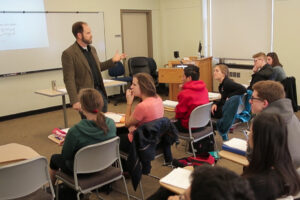
I recently facilitated an AI-focused session for the GLCA (resources, including the recording, can be found here). Out of nearly 300 registrants, about 60% reported being very familiar or somewhat familiar when asked to rate their knowledge of generative AI based on exposure through reading, podcasts, webinars, etc. Interestingly, 63% of registrants reported no experience or limited experience using generative AI such as ChatGPT, Bing, or Bard.









